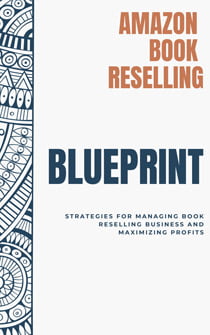Amazon Business Models in 2024: A Comprehensive Guide to E-commerce

Amazon Business Models in 2024: A Comprehensive Guide to E-commerce
Amazon is offering diverse opportunities for sellers to start in the e-commerce landscape. Understanding these models is crucial for navigating the platform effectively and maximizing revenue potential. Here is an overview of the key Amazon business models:
Introduction to Different Amazon Business Models
Retail Arbitrage:
The handmade business model is ideal for sellers creating unique, handcrafted products such as artisanal goods, crafts, and personalized items. This Amazon business model provides a platform for artisans and creators to showcase their craftsmanship and connect with customers seeking one-of-a-kind products. Handmade sellers can leverage the appeal of handmade items to target niche markets, build authentic brand stories, and differentiate themselves in a competitive e-commerce landscape.
Handmade:
Wholesale arbitrage involves purchasing products in bulk from manufacturers or distributors at wholesale prices and reselling them on Amazon for a profit. This Amazon business model requires upfront investment but offers scalability and potential for higher profits compared to other models. By establishing relationships with suppliers and negotiating favorable terms, wholesale arbitrage sellers can access a wide range of products for resale on Amazon, catering to diverse customer demands and maximizing revenue opportunities.
Wholesale Arbitrage:
Private labeling entails rebranding existing products under a seller’s own brand name. This business model offers control over branding, pricing, and product quality, allowing sellers to differentiate their products in the market. By creating unique brand identities and establishing relationships with suppliers, private label sellers can build a loyal customer base and increase profitability through exclusive product offerings tailored to their target audience.
Private Labeling:
Online arbitrage is similar to retail arbitrage but involves sourcing products online from websites like Walmart, Target, and other online retailers. This model offers a broader range of sourcing options compared to traditional retail arbitrage, allowing sellers to find discounted products and profitable deals from the comfort of their homes. Online arbitrage provides scalability and flexibility in product selection, making it an attractive option for sellers looking to expand their product offerings on Amazon.
Online Arbitrage:
Retail arbitrage involves sourcing products from retail stores at discounted prices and reselling them for a profit on Amazon. This model is popular among beginners due to its low entry barrier and flexibility in sourcing products from various retail locations. By leveraging discounts and deals found in physical stores, sellers can capitalize on opportunities to sell products at higher prices online, making retail arbitrage a straightforward way to start an Amazon selling journey.
Advantages and Disadvantages of Different Amazon Business Models
Private Label:
- Advantages: Imprint your own decisions and style on the product and brand.
- Disadvantages: Higher upfront investment for branding and supplier relationships.
Wholesale:
- Advantages: Access to products at wholesale prices for resale.
- Disadvantages: Higher initial investment in bulk purchases.
Retail Arbitrage:
- Advantages: Opportunity to find discounted products for resale, great ROI.
- Disadvantages: Time-consuming to find profitable deals and not super scalable.
Online Arbitrage:
- Advantages: Broader range of sourcing options compared to retail arbitrage.
- Disadvantages: Competition from other online sellers.
Handmade:
- Advantages: Showcasing unique, handcrafted products.
- Disadvantages: Limited appeal compared to mass-produced goods.
Tips for Beginners Starting Their Amazon Selling Journey
Retail Arbitrage:
- Start Small: Begin by scanning clearance sections at local retailers for discounted items.
- Research Thoroughly: Regularly visit stores to find hidden gems and profitable products.
Online Arbitrage:
- Develop Research Skills: Learn to identify discounted products on websites like Walmart and Target.
- Utilize Tools: Use online sourcing tools to streamline product research and listing processes.
- Diversify Sourcing: Explore a variety of online retailers to find unique and profitable products.
Private Labeling:
- Market Research: Conduct thorough market research to identify niche opportunities for private labeling.
- Build Brand Identity: Invest in branding and marketing efforts to differentiate your products.
- Quality Control: Ensure high-quality products from suppliers to maintain brand reputation.
Wholesale Arbitrage:
- Attend Trade Shows: Explore trade shows to establish relationships with suppliers and discover new products.
- Maintain Good Relationships: Foster strong relationships with suppliers by following through on commitments and maintaining communication.
- Utilize Tools: Use tools like Tactical Arbitrage to streamline product research, find profitable deals, and manage inventory effectively.
- Focus on Product Research: Conduct thorough product research to ensure profitability and avoid costly mistakes in bulk purchases.
- Negotiate Prices: Negotiate prices with suppliers to maximize profit margins and secure favorable terms for bulk purchases.
- Understand Amazon Metrics: Familiarize yourself with Amazon metrics like Best Seller Rank (BSR) to gauge product demand and profitability.
- Scale Gradually: Start small and gradually scale your business as you gain experience and build successful supplier relationships.
Handmade:
- Craft Unique Products: Showcase your creativity by offering handmade and artisanal items.
- Tell Your Story: Share the story behind your products to connect with customers on a personal level.
- Quality Assurance: Maintain high standards of craftsmanship to build trust with buyers.
By following these tailored tips for each Amazon business model, beginners can navigate the platform effectively, optimize their selling strategies, and set a strong foundation for a successful Amazon selling journey.
Choosing the Right Business Model
Amazon offers various business models for sellers to thrive in e-commerce. These models include Retail Arbitrage, Online Arbitrage, Private Labeling, Wholesale Arbitrage, and Handmade. Each model has its advantages and disadvantages. Retail Arbitrage involves reselling discounted products from retail stores, while Online Arbitrage sources products online. Private Labeling allows sellers to rebrand products under their own name, and Wholesale Arbitrage involves buying products in bulk for resale. Handmade is ideal for unique, handcrafted items. Beginners can benefit from tailored tips for each model to navigate Amazon effectively.
Selecting the appropriate business model is crucial for success on Amazon as it directly impacts pricing and profitability. Factors like budget, time commitment, product type, and expertise play a significant role in determining the most suitable model. Sellers can combine different models based on their product offerings and business goals to maximize profitability and efficiency.
Key Takeaways
- Amazon’s success is attributed to its long-term vision, continuous experimentation, and customer-centric approach.
- The company’s mission to offer a wide selection, competitive prices, and convenience has been central to its growth.
- Understanding the diverse business models available on Amazon allows sellers to tailor their strategies for optimal results.
Conclusion
If you are just starting with a limited budget, reselling books on Amazon (under retail arbitrage model) is the best way to start the ecommerce business. It requires very little budget but you may have great return on investment and that enables you to grow your business faster. To enhance your efficiency further, consider using technology like Bookzy Mobile, a mobile scanning app tailored for book scouting. It streamlines the process and provides advanced features, allowing you to make data-driven decisions on the go.

Bookzy Mobile excels in showcasing highly demanded and profitable items. It helps you make calculated decisions that minimize risk and maximize your return on investment (ROI). By identifying books with strong demand and potential profitability, you can build a more successful reselling business.
In addition, we have created a free eBook called “Amazon Book Reselling Blueprint” that you can download. If you are a bookseller on Amazon, you may find our all-in-one software for book sellers helpful.

Amazon Book Reselling Blueprint
Read now, explore our full guide. Your revolution starts here. Subscribe to get the blueprint!



